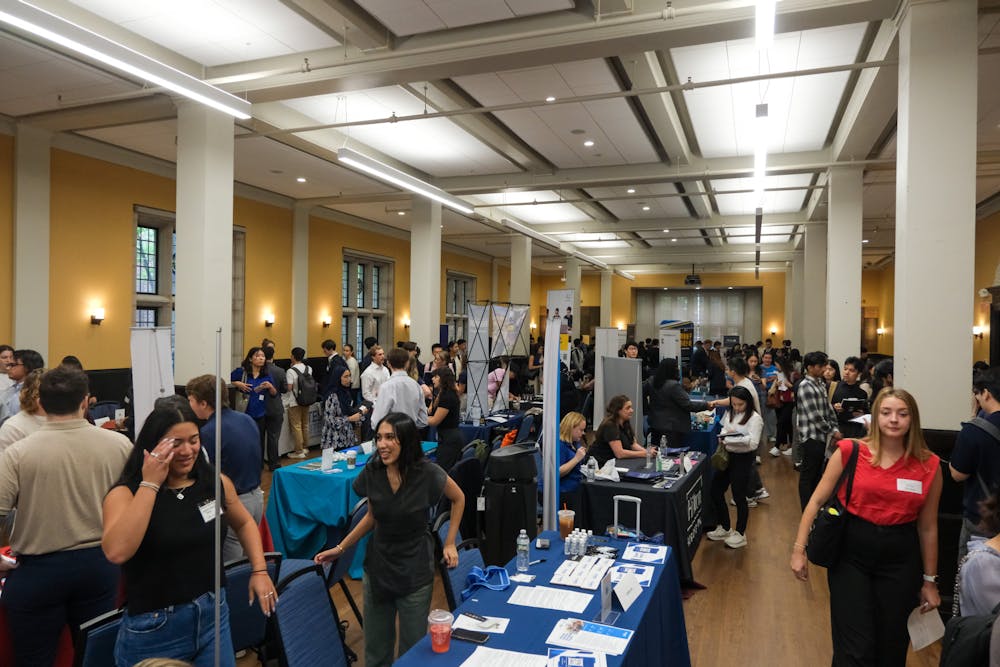
The report, citing Wharton professor Ethan Mollick, questions how organizations adapt workflows and create new approaches to organizational design using artificial intelligence.
Credit: Abhiram JuvvadiAn Accenture report cited Wharton professor Ethan Mollick in a report on organizational structures and workflows in the age of generative artificial intelligence.
The report introduced AI as representing a "fundamentally different way of working" and drew on the company's "firsthand" experience with AI reinvention to explore questions of how organizations adapt workflows, prepare workers, and create new approaches to organization design. The study also consulted experts in the field, such as Mollick.
Mollick's comments to Accenture included “radical will not become radical," written in reference to the uncharted territory of what opportunities AI presents.
"Gen AI enables enhanced collaboration between humans and machines, raising the collective intelligence of organizations," the report read. "This will create entirely new jobs and ways of working, and call for a fundamental shift in how we think about talent and skills. Traditional boundaries will be challenged, paving the way for innovative organizational structures to emerge."
He also added that "in the AI future, HR becomes your R&D department" in the context of AI's continued advancement in automating both routine and skill-based tasks.
"This evolving job architecture means organizations will need to plan their workforce based on predicted career pathways — possibly helped by AI — rather than relying on traditional, predefined paths," Accenture continued.
The report went on to state that 97% of executives believe generative AI will significantly transform their companies and industries, 65% admit they lack the necessary expertise to lead this transformation.
This disconnect highlights what the report calls a “trust gap.” On one hand, 82% of workers say they understand generative AI, and 94% feel confident in their ability to learn the skills required. However, many employers remain skeptical, citing skill shortages as the primary barrier to successful adoption.
To help organizations prepare, Accenture introduces four lenses for becoming “reinvention-ready.”
The first is amplified intelligence, which refers to the integration of human and machine capabilities to unlock new levels of insight and innovation. The second lens, dynamic skills, highlights the need for a new approach to workforce development. The third lens, fluid boundaries, reflects a shift in how work is organized. The fourth and final lens listed is adaptable structures.
The Daily Pennsylvanian is an independent, student-run newspaper. Please consider making a donation to support the coverage that shapes the University. Your generosity ensures a future of strong journalism at Penn.
Donate







